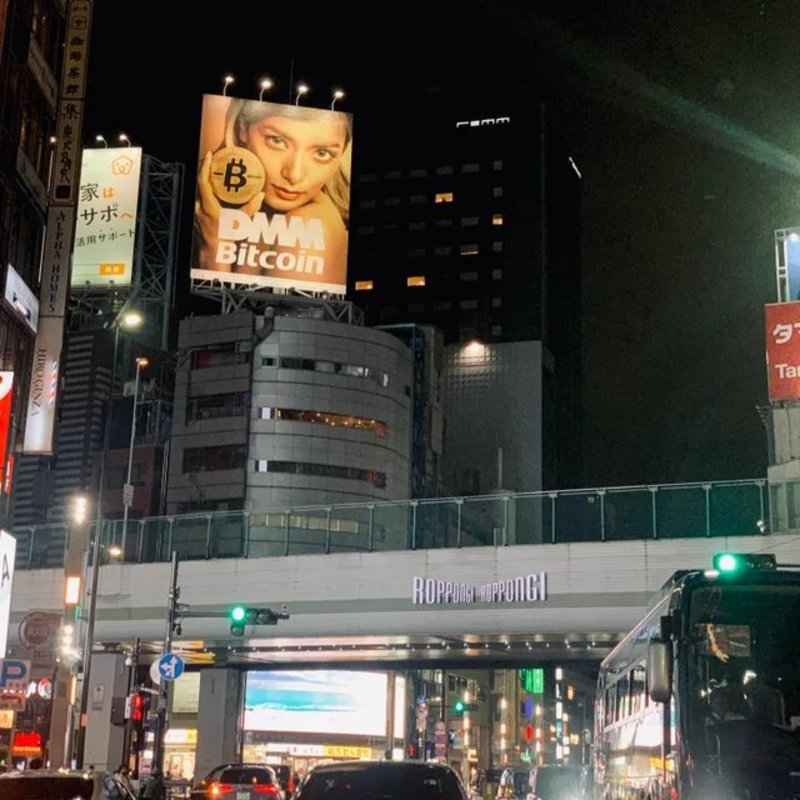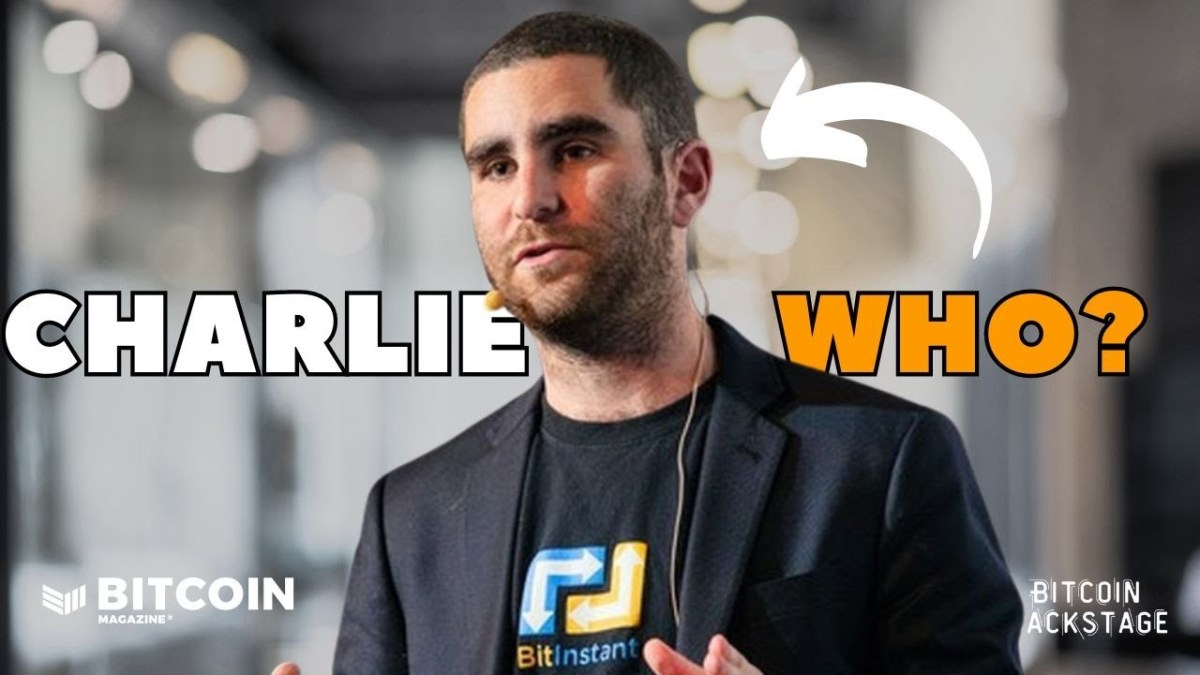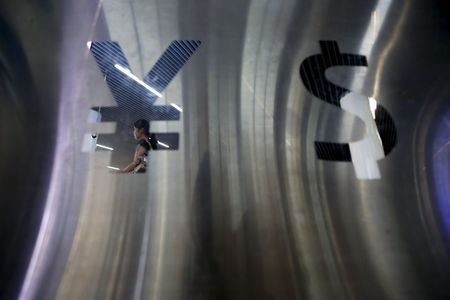Month: May 2024
Japanese Exchange DMM Bitcoin Hacked for Over $300 Million in BTC
Today, large Japanese cryptocurrency exchange DMM Bitcoin reported a significant security breach resulting in the loss of 4,502.9 BTC, currently valued at over $300 million. The incident occurred at approximately 1:26 p.m. and involved unauthorized access to the exchange’s wallet.
In an official statement, DMM Bitcoin said that measures have been taken to prevent further unauthorized access by imposing restrictions on certain services in attempt to enhance security. These restrictions include suspending new account openings, processing cryptocurrency withdrawals, and accepting new buying orders for spot trading. However, existing limit orders and withdrawals of Japanese Yen may experience delays.
DMM Bitcoin said that it is committed to fully guaranteeing all customer Bitcoin deposits. “Please rest assured that all of your Bitcoin (BTC) deposits will be fully guaranteed as we will procure the equivalent amount of BTC that was leaked with support from our group companies,” the announcement stated.
The exchange says they “deeply apologize for any inconvenience caused to our customers,” and is actively investigating the details of the breach. DMM Bitcoin says it will provide updates as more information becomes available.
For further inquiries and affected customers are encouraged to visit the DMM Bitcoin customer support page.
Nostriches Flock To NYC-Based Bitcoin Bar PubKey For Nostr Village
Yesterday, Nostr users from around the US came together at New York City’s premiere Bitcoin bar PubKey for Nostr Village, a mini-conference focused on the open protocol that enables global, censorship-resistant social media and more.
Who’s coming to #NostrVillage tomorrow?
It’s a day of censorship resistant value for value creative expression and zaps, and it’s all happening at PubKey starting at 2 PM.
Meet your favorite nostriches, and ask anything!
Can’t make it for the whole event? Come by at 6 PM for… pic.twitter.com/SkCecbzJdR
— PUBKEY (@PubKey_NYC) May 30, 2024
The name of the conference included a nod to the neighborhood in which PubKey is located, New York’s historic Greenwich Village. It was also a play on Nostrville, the name of a 2023 Nostr conference that took place in Nashville, TN, which Daniel Modell, Head of Marketing at PubKey and organizer for Nostr Village, attended.
“Nostr is something that I was involved with prior to being part of PubKey, and I wanted to bring it to more people,” Modell told Bitcoin Magazine at the event.
“We’re still very early in the Nostr adoption curve and so we have to be the ones to spread the word, just like with Bitcoin in the earlier days,” he added.
The vibe at Nostr Village felt very much like what I’d imagine the vibe at a smaller Bitcoin conference was like in Bitcoin’s fourth year of existence (Nostr went live November 2020) — exciting and illuminating yet a bit awkward, as Nostr is still a very nascent technology and no one yet knows quite what it will become.
However, with so many active Nostr users in attendance at the event, there was no shortage of people sharing what they do understand about Nostr in efforts to educate the other attendees.
On panels such as “Design and Code: User Experience Is Everything” and “Value For Value and Community: Nostr Is For Creators”, everyone from developers to creatives contributed to expanding the knowledge base of those in attendance.
Avi Burra, author of the Bitcoin fiction book 24 and host of the Plebchain Radio podcast, took part in two of the panels — “Can’t Cancel This: Censorship Resistance On Nostr” and “Nostr for Noobs” — and stressed that Nostr is much more than just decentralized social media.
“The biggest misperception of Nostr is that it’s just a social media app,” Burra told Bitcoin Magazine at the event.
“I’m hopeful that Nostr’s design at the protocol level can enable a truly censorship resistant communications platform but also that other stuff that can be built on it — YouTube replacements, Spotify replacements,” he added.
[Editor’s note: Sam Means, co-founder of Wavlake, a music streaming platform built on Nostr that let’s fans stream sats to their favorite musicians — an alternative to Spotify’s model — was in attendance at the event.]
Burra also noted how much of a success the event was simply because it gave “Nostriches” — a slang term for avid Nostr users — an opportunity to connect in real life.
But not everyone at the event was a Nostr pro. Some attendees were there to learn more about what exactly Nostr is and how to use Nostr clients like Primal, Flockstr and Coracle.
Parker Worthington, director of My Trust In Your Is Broken, a documentary on BTC Pay Server, also attended the event and commented on how important events like this are to those who are new to the Nostr space.
“One of my favorite things about smaller Bitcoin or Nostr meetups is that there’s always [some] people that have either never heard of Bitcoin or never heard of Nostr in the room,” Worthington told Bitcoin Magazine at the event.
“It rubs off on them so quickly that they now have this group to go to,” he added.
While the event wasn’t technically a meetup, it did have the feeling of a bigger version of one, and this was part of Modell’s intention.
“What we do at PubKey is different than traditional Bitcoin conferences, because we think of ourselves as almost an anti-conference space,” explained Modell.
“We do these smaller events, [but] people who weren’t even here who were watching on the livestream — on zap.stream — posted things like ‘This is a real conference,’” he added.
A real conference it was, and, according to Modell, it will likely be the first of many to come.
“I’d love to be able to do a Nostr Village every year and see how year over year we grow and what technologies develop on Nostr,” concluded Modell. “We’ve only been doing this (referring to teaching one another about Nostr) for a short time, and so there’s a lot more to do.”
NRA & Cantero In The Supreme Court: Implications for Operation Choke Point 2.0 and Custodia Bank
Yesterday, the Supreme Court of the United States issued two important cases which will likely have wide ranging impacts for Bitcoin and crypto. The decisions are National Rifle Association of America v. Vullo (NRA) and Cantero, et al. v. Bank of America, N. A. (Cantero).
In NRA, the Court addressed a critical issue impacting not only traditional advocacy groups but any disfavored, but legal, industry. This ruling draws parallels to Operation Choke Point 2.0, where U.S. regulators have allegedly been targeting crypto businesses through financial exclusion. Moreover, the recent Cantero decision sheds light on how this legal framework might impact Custodia Bank’s appeal against the denial of their master account by the Federal Reserve.
The NRA Case
The National Rifle Association (the NRA) sued Maria Vullo, former superintendent of the New York Department of Financial Services (DFS), alleging that she used her regulatory authority to coerce financial institutions into severing ties with the NRA. The NRA claimed this was an unconstitutional suppression of their First Amendment rights.
Vullo argued that her actions targeted business practices and relationships, which she claimed were “non expressive activity” rather than speech, and as such wasn’t unconstitutional coercion. However, the Supreme Court found this argument misplaced. “That Vullo ‘regulate[d]’ business activities stemming from the NRA’s ‘relationships with insurers and banks,’ does not change the allegations that her actions were aimed at punishing or suppressing speech.” See NRA decision, page 17 (internal citations omitted, emphasis added).
The Supreme Court vacated the Second Circuit’s decision favoring Vullo and remanded the case, reiterating, again, that government officials cannot use coercion to punish or suppress disfavored speech or advocacy indirectly.
Operation Choke Point
Operation Choke Point was an initiative by the Department of Justice (DOJ) aimed at “choking out” businesses considered high-risk by denying them access to banking and payment networks. Although these businesses, such as firearms dealers, payday lenders, and adult entertainment, were legal, the DOJ pressured banks to terminate relationships with them, citing “reputational risk.” This initiative effectively coerced banks into compliance under the threat of federal investigation, significantly impacting legitimate businesses across various industries. The FDIC finally settled a lawsuit related to Operation Choke Point in 2019.
Operation Choke Point 2.0, a term coined to describe the alleged actions of U.S. regulators against the cryptocurrency industry, involves a series of informal guidance and regulatory pressures aimed at financial institutions to limit or terminate their relationships with crypto businesses. This echoes the original, and illegal, Operation Choke Point, which targeted industries like payday lending and firearms sales, without due process or clear legal justification.
Just as in NRA, Operation Choke Point 2.0 involves regulatory authorities overstepping their bounds and using undue influence and outright coercion against disfavored, but legal, actors. NRA emphasizes that such overreach, especially when used to suppress specific viewpoints or industries, is unconstitutional. In both scenarios, regulators are accused of using their power to enforce an ideological stance rather than following explicit statutory mandates.
The core of the NRA’s argument was that Vullo’s actions were a violation of their First Amendment rights. Similarly, if regulators are targeting crypto businesses because of a disfavored viewpoint on decentralization and financial autonomy, this could constitute a similar violation. The Supreme Court’s decision reinforces that indirect suppression of speech through coercion is unconstitutional.
NRA also highlights significant due process issues, where affected entities are denied a fair chance to defend themselves against covert regulatory actions. Crypto businesses facing sudden account closures and banking restrictions without clear explanations or recourse echo the NRA’s experience, raising serious due process concerns.
Finally, and this is a bit of speculation, now that the Supreme Court has stated it clearly, one can argue that Qualified Immunity should not be extended to government officials that knowingly violate the Constitution when they coerce or attempt to coerce the violation of First Amendment rights. Removing Qualified Immunity means that such officials can then be held personally liable for violating the Constitution.
The Cantero Decision and Its Implications for Custodia Bank
The Cantero case involved Bank of America, a national bank, and whether it was required to pay interest on escrow accounts as mandated by New York state law. The Second Circuit court dismissed the case based on an argument that the New York law was preempted by Federal laws, but did not engage in the required full analysis of this issue. The Supreme Court unanimously ruled that, while state laws significantly interfering with national bank powers are preempted, Congress provided a detailed process, outlined in the Dodd-Frank Act to determine if preemption is appropriate. The Court reversed the Second Circuit, requiring the Circuit court to fully engage in a thorough review of the issues.
As part of this ruling, the Court reiterated that:
The United States maintains a dual system of banking, made up of parallel federal and state banking systems. That dual system allows privately owned banks to choose whether to obtain a charter from the Federal Government or from a state government.
Banks with federal charters, called national banks, are subject primarily to federal oversight and regulation. And banks with state charters, called state banks, are subject to additional state oversight and regulation. Those two banking systems co-exist and compete.
Cantero emphasizes that a finding of significant interference by state laws with national banking powers requires a nuanced analysis aligned with the Dodd-Frank Act and prior Supreme Court precedents, and at a high level both explicitly and implicitly emphasizes that the dual-banking system is still alive and well.
However, if the Federal Reserve can exercise more than ministerial discretion in denying master accounts to state chartered banks, the entire existence of the dual banking system can itself be rendered a nullity. Going further, if the regional Federal Reserve banks do indeed have arbitrary discretion to grant or deny master accounts (as was held by Judge Skavdhal in Custodia’s district court decision), and, as is maintained by the Kansas City Fed that regional Reserve Banks are private, then the same undue influence and coercion arguments of NRA may also be brought to bear here.
Conclusion
The Supreme Court’s decisions in NRA and Cantero both provide steps toward addressing Federal overreach related to Bitcoin, impacting both Operation Choke Point 2.0 and Custodia Bank’s access to the financial system. While NRA is more immediately useful, and I believe will be used in short order to attack aspects of Operation Choke Point 2.0, and de-banking of legal but disfavored industries and individuals, Cantero seems to suggest that Custodia is on solid ground in its appeal. But on a more general level, it further exposes the unrestrained nature of the modern administrative state that we also saw deployed against Bitcoin mining in the EIA case.
Small victories, yes. But like stacking sats, they build.
This is a guest post by Colin Crossman. Opinions expressed are entirely their own and do not necessarily reflect those of BTC Inc or Bitcoin Magazine.
Lessons From The Fall of Charlie Shrem: Bitcoin’s First Felon
Charlie Shrem, once a rising star in the Bitcoin world, became the first prominent figure to face imprisonment due to his involvement in cryptocurrency. As the founder of BitInstant, one of the earliest and most influential Bitcoin exchanges, Shrem played a pivotal role in the early adoption of Bitcoin. However, his arrest in 2014 for money laundering linked to Silk Road transactions marked a significant turning point.
The Rise of BitInstant
Charlie Shrem discovered Bitcoin during his senior year of college and quickly saw its potential as a revolutionary form of money that promised personal freedom, autonomy, and privacy. In 2011, he co-founded BitInstant with Gareth Nelson, creating a platform that made it easier for people to buy and sell Bitcoin during a time when such transactions were incredibly challenging. Within a year, BitInstant was facilitating nearly a third of all Bitcoin transactions, partnering with major retailers like Walmart and 7-Eleven to allow users to deposit cash into their accounts at over 700,000 locations worldwide.
The Fall: Silk Road and Legal Troubles
BitInstant’s rapid growth and success came to a halt when Robert Faiella, a user of the platform, was found to be purchasing large amounts of Bitcoin with cash and selling them on Silk Road, an online black market notorious for its drug trade. Although Shrem was not directly involved in illegal activities, his failure to report these suspicious transactions led to his arrest at JFK Airport. In January 2014, Shrem was charged with aiding and abetting the operation of an unlicensed money transmitting business and sentenced to a year in prison.
Lessons Learned
Shrem’s downfall underscores the reality that, regardless of Bitcoin’s ethos of decentralization and financial freedom, the cryptocurrency space is not immune to existing regulatory frameworks. While the principles behind Bitcoin advocate for autonomy and privacy, companies operating in this space must recognize and navigate the stringent regulations that govern financial activities. This story serves as a cautionary tale about the potential dangers posed by government intervention and regulatory overreach. It highlights the need for the Bitcoin community to protect the industry from policymakers who may seek to impose restrictive measures. The key lesson is to remain vigilant and proactive in defending Bitcoin’s foundational ideals against regulatory pressures that could stifle innovation and freedom.
Charlie Shrem’s journey from a pioneering Bitcoin entrepreneur to a convicted felon offers a stark reminder of the challenges and risks inherent in the cryptocurrency world. His story emphasizes the importance of regulatory compliance and the ongoing need to navigate a complex legal landscape. As the Bitcoin industry continues to evolve, the lessons from Shrem’s experience remain relevant, highlighting the need for vigilance, advocacy, and a commitment to upholding the principles of decentralization and financial freedom.
Resilience and Vision: Insights from Obi Nwosu
In a “Bitcoin Backstage” interview, Obi Nwosu, co-founder of Fedimint, shared his journey and vision for Bitcoin. Nwosu discovered Bitcoin in 2011, blending his technology background with a passion for meritocracy. “It was like a match made in heaven,” he recalls, emphasizing how Bitcoin’s principles aligned with his values.
His life, characterized by resilience, mirrors Bitcoin’s anti-fragility. “My life is basically a story of being anti-fragile, having been knocked down many times but learning the art of getting back up.” Nwosu draws parallels between his personal journey and Bitcoin’s resilience: “Bitcoin is anti-fragile money. Whenever it is attacked, it gets stronger, it gets better, it gets faster.”
Reflecting on the collapse of FTX, Nwosu sees short-term negativity but emphasizes long-term benefits. “It reminds people why we say the things we do, especially in the Bitcoin space. We’ve been very consistent: you should try to self-custody.” The mantra “not your keys, not your coins” remains central, stressing the importance of security and personal responsibility.
Looking ahead, Nwosu champions innovation within the Bitcoin ecosystem, advocating for the development of applications on platforms like the Lightning Network and Fedimint. His vision is clear: by adhering to foundational principles and fostering resilience, Bitcoin can continue to thrive and transform the financial landscape.
Nwosu’s story and insights provide a hopeful vision for Bitcoin’s future, emphasizing resilience, self-custody, and continuous innovation as essential for navigating the complexities of the modern financial world.
Legendary Trader Peter Brandt Predicts 230% Bitcoin Price Increase
Renowned commodities trader Peter Brandt predicted Bitcoin could surge 230% against Gold after 12-18 months.
JUST IN: Legendary Trader Peter Brandt predicts the #Bitcoin price to rise 230% against Gold.
Are you prepared? 
— Bitcoin Magazine (@BitcoinMagazine) May 31, 2024
Brandt has over 50 years of trading experience and correctly called Bitcoin’s parabolic bull market in 2017. His latest forecast says the bitcoin-to-gold ratio could reach 100 ounces after a consolidation period.
The veteran trader tweeted, “Since its inception, Bitcoin $BTC has gained against Gold. This chart shows the # oz. of $GC_F to buy one BTC. The ratio should chop for another 12 to 18 months — then advance to 100 oz of GC to buy a BTC.”
Currently, the BTC/GLD ratio sits around 29, meaning it takes 29 ounces of gold worth $68,000 to purchase one Bitcoin. But Brandt expects this ratio to triple to 100 ounces after Bitcoin’s next consolidation phase ends.
At today’s gold prices, 100 ounces would make one bitcoin worth over $234,000 – representing a 230% price increase.
Brandt has long been bullish on Bitcoin versus Gold. Since its creation in 2009, Bitcoin has massively outperformed the traditional haven asset, gaining over 375,000% against Gold in that time span.
The trader believes Bitcoin still has ample room to run versus Gold despite already seeing such enormous relative gains. The BTC/GLD ratio chart shows Bitcoin’s long-term uptrend against Gold with room to advance.
Brandt expects Bitcoin to continue significantly outshining Gold in the years ahead. With the approval and successful launch of the US Bitcoin spot ETFs earlier this year, its reputation as a digital store of value continues to grow among institutions.
USD/CAD expected to weakned into year end
Post Content
UBS sees NZD/USD on shaky ground amid economic headwinds
Post Content
Dollar rebounds ahead of PCE release; euro slips after German retail sales
Post Content
Asia FX weakens as China PMIs disappoint; Dollar steady before PCE data
Post Content
University of Austin And Unchained To Raise $5 Million For Bitcoin Endowment
Unchained and the University of Austin (UATX) have announced their collaboration to create a long-term endowment holding Bitcoin.
“I’ve been very passionate about what UATX is building in Austin,” said Joseph Kelly, CEO and co-founder of Unchained, who has personally donated 2 BTC to kickstart this campaign. “I’ve seen the values the organization places on free speech and on building a modern academic institution that’s integrated with the marketplace, and I’m thrilled to play a role in helping the university make bitcoin a part of its long term strategy.”
The initiative aims to raise $5 million for the university’s endowment, with the funds committed to remaining in BTC for at least five years. The endowment funds are to be held securely and managed by Unchained, a prominent Bitcoin financial services provider specializing in multisig Bitcoin vaults.
The partnership also seeks to merge UATX with the broader Bitcoin community by collaborating on planned efforts such as joint marketing campaigns, events, guest lectures, and hosted debates.
“University endowments are about serving students, and bitcoin provides a unique opportunity for advancing UATX’s commitment to cultivating future generations of leaders and innovators,” said Thomas Hogan, incoming Associate Professor, Center for Economics, Politics, and History.
Founded in 2016, Unchained currently manages over $6 billion in Bitcoin, helping thousands of individuals and businesses hold their own Bitcoin keys through its collaborative custody model. The University of Austin is a private, nonprofit institution dedicated to the fearless pursuit of truth, according to the release.
“Both UATX and the bitcoin community are building institutions for the future at a time when their respective worlds of higher education and financial services are captured by entrenched powers which limit freedoms through censorship,” Kelly added. “By choosing Unchained as a partner, the university is also signaling its assessment of bitcoin’s function as a freedom preserving technology, with our custody model helping to ensure there is no single point of failure to UATX’s long-term holdings.”









